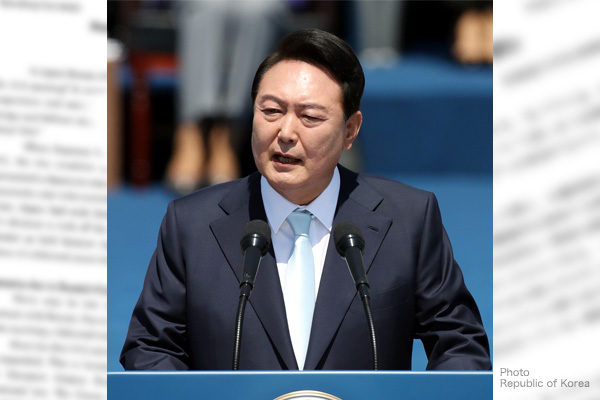South Korean President Yoon Suk Yeol and the ruling People Power Party’s leader and Emergency Committee Chairman Han Dong Hoon have original sins. Both had been special investigation prosecutors before becoming politicians. In early February, well-known South Korean journalist Cho Gab Je told me: “The two men as prosecutors were not lawyers who stood up to great evils based on law and justice, but legal technicians who used law to crack down on opponents. Many South Korean conservatives who do not criticize the two are not true conservatives.”
Unreasonable prosecution responding to leftist government’s desire
Cho’s comment came after the Seoul District Court recently acquitted two defendants. On January 26, former Supreme Court Chief Justice Yang Sung Tae, who had been indicted for 47 charges, was acquitted on all counts. On February 5, Samsung Electronics Chairman Lee Jae Yong, who had been charged with 17 crimes, was also acquitted on all charges. The investigations and prosecution of these two cases were carried out under the leftist Moon Jae In government. Yoon took charge of the two cases as chief prosecutor at the Seoul Central District Prosecutors’ Office, and Han led the investigations as the third deputy prosecutor at the office.
At the time, Yoon and Han not only arrested and indicted former presidents Park Geun Hye and Lee Myung Bak and their aides but also interrogated more than 100 incumbent and former judges, that had never been investigated by prosecutors, and arrested and indicted more than a dozen judges including the former Supreme Court chief justice.
The interrogation came as leftist judges began to complain after the Moon government’s inauguration that they had been blacklisted and treated unfairly at personnel reshuffle within courts during the conservative Park government. However, no blacklist came out through three internal investigations.
As soon as President Moon vowed to investigate the judicial appropriation scandal in September 2018, however, Supreme Court Chief Justice Kim Myung Soo, who was appointed by Moon, offered to actively cooperate with the prosecution’s investigations, prompting five-month-long large-scale investigations by 50 prosecutors under the auspice of Yoon and Han.
Prosecutors at last found that then President Park had lobbied the judicial branch to delay a trial on Korean wartime workers’ demand for compensations. What the Park government did was only conveying an opinion that any ruling endorsing such compensations would be criticized internationally as violating a Japan-South Korea treaty. Apparently because Han was not so confident of his own prosecution, he indicted former Court Justice Yang on as many as 47 charges. Han might have expected that Yang would be found guilty of at least one of the charges. However, Yang was found not guilty of all charges.
Conservatives refrain from criticizing Yoon
Samsung Electronics Chairman Lee had been accused of fraudulently merging two companies in the Samsung group in the process of taking over the group management from his father, but he was acquitted, too. In fact, this acquittal ruling is related to former President Park’s court trial. In the guilty verdict against Park, it was alleged that Lee’s lending of a riding horse to the daughter of a friend of Park’s was a bribe to secure approval for the illegal merger. If the merger is legally sound, the premise of the conviction for Park may be reversed.
In the wake of the latest two rulings that exposed the reality of the rule of law in South Korea, conservative newspapers such as the Chosun Ilbo and Dong-A Ilbo, as well as many conservative politicians and intellectuals, have denounced only former President Moon and Supreme Court Chief Justice Kim, while refraining from criticizing Yoon and Han.
Tsutomu Nishioka is a senior fellow and a Planning Committee member at the Japan Institute for National Fundamentals and a specially-appointed professor at Reitaku University. He covers South and North Koreas.


